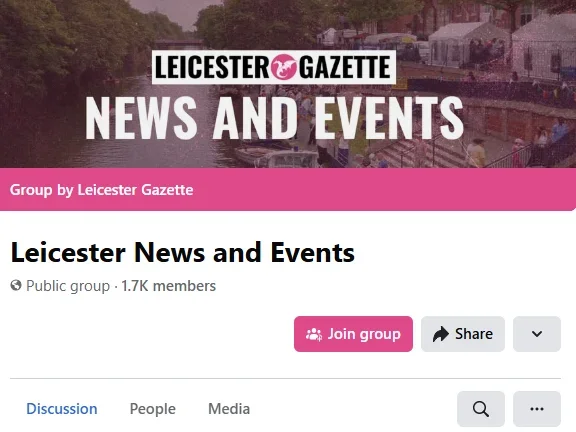
An independent local news publisher in the UK has had its account disabled by Facebook for unspecified breaches of community standards.
Leicester Gazette, a co-operative news outlet which launched in March 2023, has been told its account “doesn’t follow our community standards on account integrity”.
Leicester Gazette has a Facebook page with 91 followers but more significantly runs a group, Leicester News and Events, with around 1,700 members.
It said Facebook was its second-biggest source of social referral traffic after Reddit and raised concerns about the timing of the ban ahead of the Leicestershire County Council elections taking place this week.
The team were not given a reason for the ban. They were initially invited by Facebook to submit a verification video, which they did, but were subsequently told their account had been permanently suspended with no mechanism through which to dispute it.
When they attempt to log into their account, they now receive a message that states: “We’ve disabled your account.
“We’ve reviewed your account and found that it still doesn’t follow our Community Standards on account integrity.
“You cannot request another review of this decision. To learn more about the reasons why we disable accounts, visit the Community Standards.”
The section of Facebook’s standards on “account integrity” states: “In order to maintain a safe environment and empower free expression, we restrict or remove accounts that are harmful to the community. We have built a combination of automated and manual systems to restrict and remove accounts that are used to egregiously or persistently violate our policies across any of our products.
“Because account removal is a serious action, whenever possible, we aim to give our community opportunities to learn our rules and follow our Community Standards. For example, a notification is issued each time we remove content, and in most cases we also provide people with information about the nature of the violation and any restrictions that are applied.
“Our enforcement actions are designed to be proportional to the severity of the violation, the history of violations on the account and the risk or harm posed to the community. Continued violations, despite repeated warnings and restrictions, or violations that pose severe safety risks, will lead to an account being disabled.”
The publication’s community lead Rhys Everquill said: “We are deeply concerned about the impact of this ban on our ability to serve local people.
“Our Facebook group has become a vehicle for local people to connect and stay informed, especially during election periods. We’re actively working to resolve this situation and restore our presence on Meta’s social media platforms.”
Over the past year, Leicester Gazette has also faced issues with Facebook marking posts as spam and removing them – similar to many other local and specialist publishers as reported by Press Gazette in June.
Numerous publishers around the world including in the UK, US and Europe repeatedly had posts linking to their websites removed after being flagged as spam. They all found it difficult to speak to someone at Facebook owner Meta to get to the bottom of the issue.
After publication, even more small publishers got in touch. One independent news outlet owner in New Zealand told Press Gazette: “Facebook recently took down a public service announcement about heavy snowfall, labelling it as spam.
“It’s incredibly frustrating, especially considering my audience relies on timely, accurate news.”
Leicester Gazette, which was originally named Great Central Gazette but rebranded in September last year, is owned by its members, staff, readers and local groups as a co-operative in a similar model to the Bristol Cable and The Ferret in Scotland. It is currently online only but has plans to launch a print edition this year. It began paying its staff, previously volunteers, last summer.
Meta has not responded to a request for comment.
Meta is however allowing scam ads that steal journalists’ identities to add an air of legitimacy to proliferate across Facebook, Instagram and Whatsapp even after being made aware of notable examples.
Email pged@pressgazette.co.uk to point out mistakes, provide story tips or send in a letter for publication on our "Letters Page" blog

